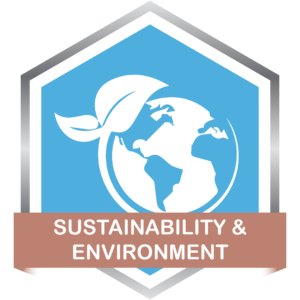Pearl Qualified Professional – PQP Exam Question Bank
The Pearl Qualified Professional – PQP Exam Question Bank consist of multiple-choice questions. The students will be able to assess their knowledge and ability to finish the exam with the required score by practising 240+ questions in six simulation exams to be completed in 60 minutes each.
The simulation exams are applicable for the Pearl Building Rating System – Pearl Qualified Professional exams and will give you lifetime access to the tests. They can be taken an unlimited number of times.
The Building Rating System of the Pearl Rating System encourages sustainable building development in Abu Dhabi.
The instrument promotes water, energy, and waste reduction, local material use, and enhanced supply chains for sustainable and recycled materials and products throughout the design and construction phases of a project.
The PBRS applies to office buildings, retail buildings, multi-residential buildings, schools, and mixed-use buildings. The sustainability of buildings is evaluated using a comprehensive list of required and optional credits that vary based on the building’s purpose.
The Pearl Building Rating System (PBRS) aims to promote the development of sustainable buildings and enhance the quality of life. Achieving a sustainable building requires the integration of the four Estidama pillars and the Integrated Development Process, a collaborative and inter-disciplinary approach to building development.
Pearl Building Rating System – PQP Exam Question Bank consist of multiple-choice questions. The students will be able to evaluate their knowledge and ability to achieve the required exam result by completing 200 questions in five one-hour simulation exams.
The Pearl Building Rating System Version 1.0 is compatible with the simulation examinations, and you will have lifetime access to the assessments.
The Pearl classification system was developed by Estidama, a provider of green building and sustainability initiatives. You will become a PQP-PRS in Abu Dhabi, Emirates (UAE) upon passing the final examination and submitting the required paperwork.
Beyond Smart Cities is the first global marketplace for green technology, connecting millions of experts in sustainability, green building, energy, health, safety, fire safety, climate change, and green product and technology manufacturing. Its mission is to build and support a global community of professionals with the highest standards in these areas, including GHG accounting, carbon auditing, and managing GHG emissions.
Krishnaji Pawar, a knowledgeable green building specialist with expertise in sustainable design strategies for commissioning, environmental impact assessment, green building certification systems (LEED, GSAS, etc.), energy modeling, and environmental management systems, created the Pearl Qualified Professional – PQP Exam Question Bank.
Each simulation exam will allow the students to focus on the credit sections they are studying while providing explanations for correct and incorrect answers. Our simulation exams are designed to make you pass the exam on your first attempt.
Benefits of Our PQP Practice Tests:
- You will assess your knowledge prior to the final Pearl Building Rating System – PQP Exam Exam.
- You will have access to 240+ questions in six simulated exams that cover the whole PQP Exam study material.
- Understand the reasoning behind each question and answer and the related knowledge area to be able to restudy or revise.
- Our simulation exams are considered part of your studies as they cover the whole Pearl Rating System V1.0.
- You will become familiar with green building and sustainability terminologies
- You will likely pass the exam on your first attempt.
- Pearl Qualified Professional Exam Study cards -188+ key terminology study cards help you study!
Why should you get your PQP certification?
The PQP Exam is the means through which a candidate may meet the requirements of the Pearl Rating System and earn the PQP certification. This credential is necessary for the rating process of all communities and buildings. The following will fall within the purview of the PQP:
- Acquiring an understanding of the credit systems used by the Pearl Community and Building Rating Programs and how they are applied to projects
- Streamlining the procedures involved in certification
- Providing quality assurance to papers prior to submission to Estidama.
The 240+ Question Pearl Rating System—PQP Exam Question Bank is useful on its own, but it will also help engineers make a targeted, personalized study plan that will help them reach their professional growth goals. You can study with the help of five practice tests with more than 240 questions and 188+ key terms study cards.





